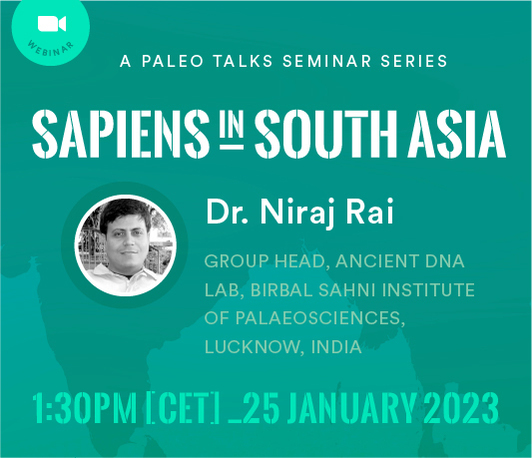Reconstructing the peopling of old-world South Asia: from modern to ancient genomes
- Date: Jan 25, 2023
- Time: 01:30 PM - 02:30 PM (Local Time Germany)
- Speaker: Dr. Niraj Rai
- Scientist & Group Head, Ancient DNA Lab at BSIP, Lucknow
- Location: Zoom
- Host: Department of Archaeology
- Contact: gjha@shh.mpg.de

Reconstructions of the past effective population size strongly suggest that South Asia has been populated almost since the Early Upper Palaeolithic. One of the probable explanations of this pattern relates to the fact that South Asia was among the first geographic regions to be peopled by modern humans after their African exodus. Today, various ethnic groups of South Asia comprise tribes, castes, and populations identifying themselves by different religions, being largely endogamous and hence revealing complex, multilayered genetic differentiation. From such a complex structure, several questions have stood out from our and other research groups analyses that could not be addressed a few years ago but can be now using the latest technology and resolution. The novelty of the approaches rely largely, though not solely, on extensive high-coverage sequencing of specifically targeted modern and ancient samples, autosomal SNP genotyping of specific populations, extensive Y chromosome resequencing of selected population groups (Tribal and caste populations from different geographical area) and statistical analysis of the results in the context of human genomic variation worldwide. Here, I will discuss the complex population structure of Indian Sub-continent and future research directions to understand the deep ancestry components of South Asians at the Eurasian and global scales, patterns of admixture and migrations derived from studying ancient and modern genomes.